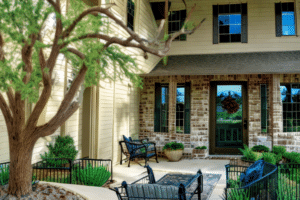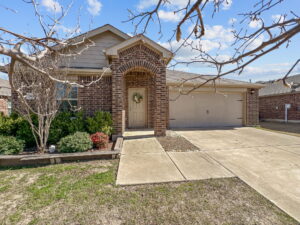Foundation issues can be common in North DFW homes given the region’s expansive soil, but with proper maintenance and inspections, these issues can be mitigated.
The phrase “foundation issues” can evoke feelings of panic among homeowners in North DFW, Texas.
Rest assured, however, that having foundation problems doesn’t mean you’re stuck in a hopeless situation.
No house is immune to them, and foundation issues are completely fixable. Brace yourselves as we take a comprehensive dive into the signs, causes, and solutions of foundation issues common in Texas Homes.
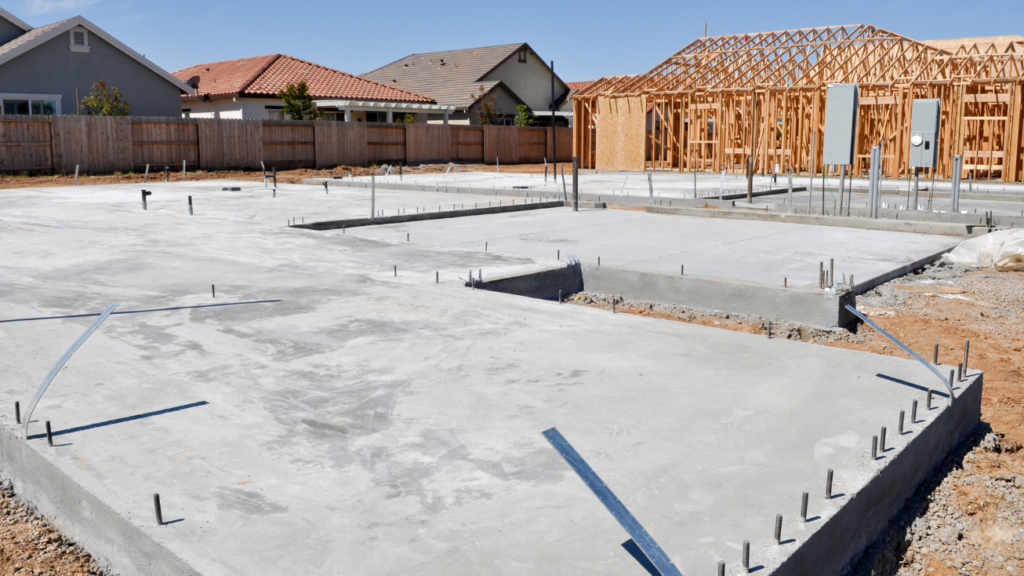
Understanding What a Foundation Does
Believe it or not, your house’s foundation is its superhero. It bears the weight and pressure of your house and maintains its structure, keeping it even and straight.
Encountering shifting soil, temperature fluctuations, or natural wear and tear can cause some strain on your foundation.
As a homeowner, you may see these shifts manifest in various distressing signs within your home.
I have put together a comprehensive home buyer’s guide just for you.
What types of home foundations are common in North DFW?
The common types of home foundations in North DFW include slab-on-grade, pier and beam, and basement foundations.
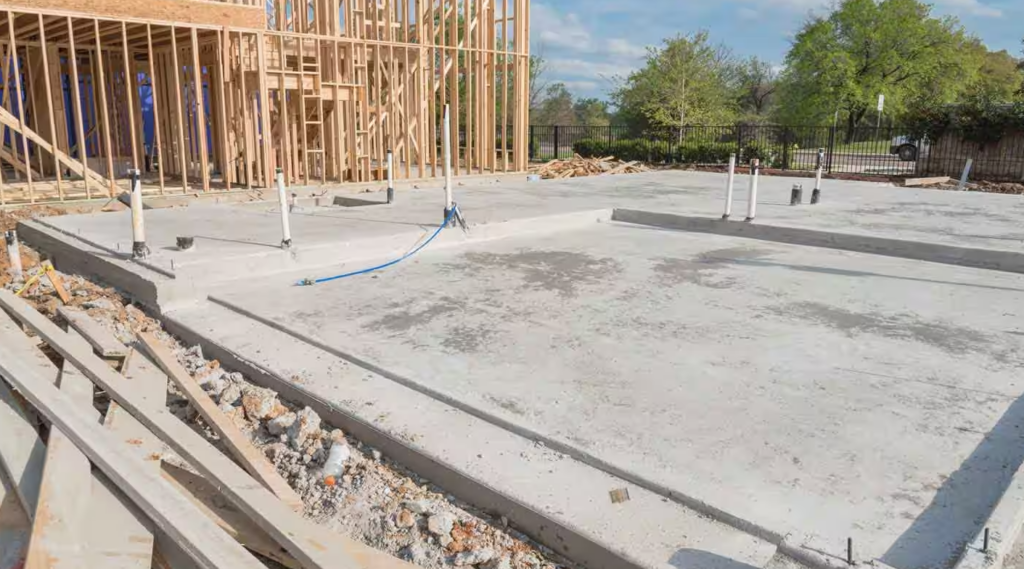
Slab Foundation:
Also known as a concrete slab foundation, this type is the most commonly used in North Texas. It is cost-effective and typically used in areas with stable soils. In this method, a concrete slab is poured directly on the grade, making the house sit near the ground level.
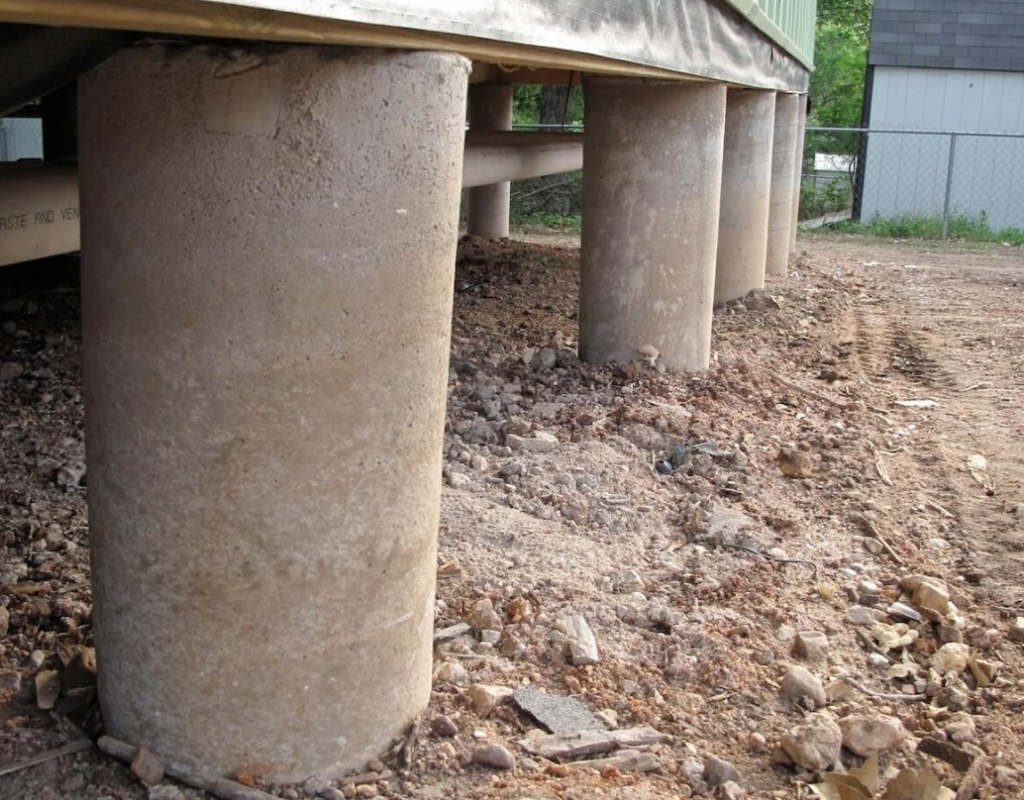
Pier and Beam Foundation:
This foundation type involves a crawl space (usually between 18 inches and 8 feet) beneath the home and footing and posts to support the building’s floor system. This type of foundation is suitable for sloping lots and areas with expansive clay soil.
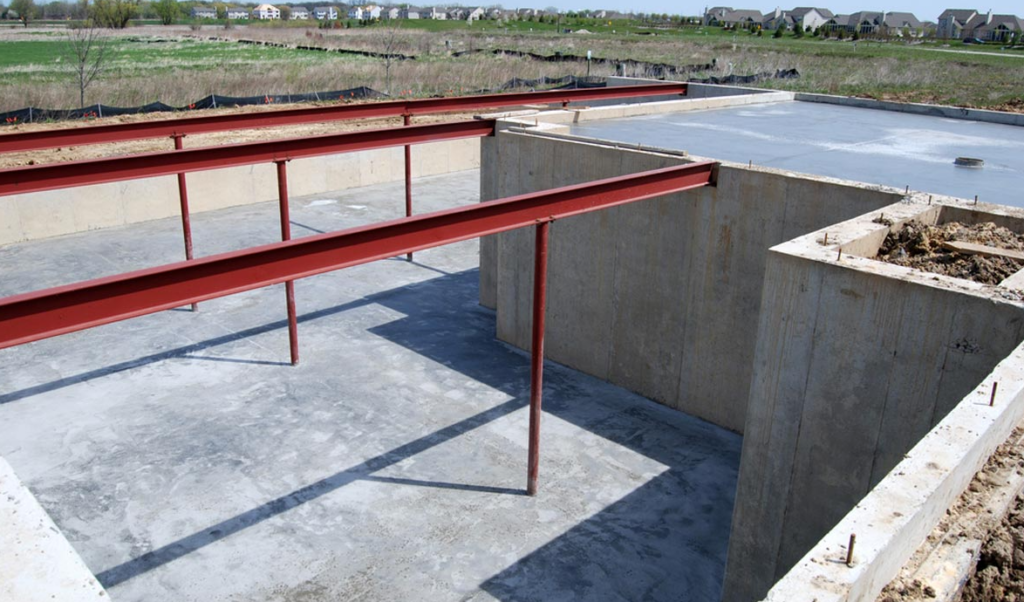
Basement Foundation:
While not as common in Texas due to the clay-rich soil, you may still find some homes with basements. Basements can provide extra living space, but they require extensive excavation and waterproofing to prevent moisture issues.
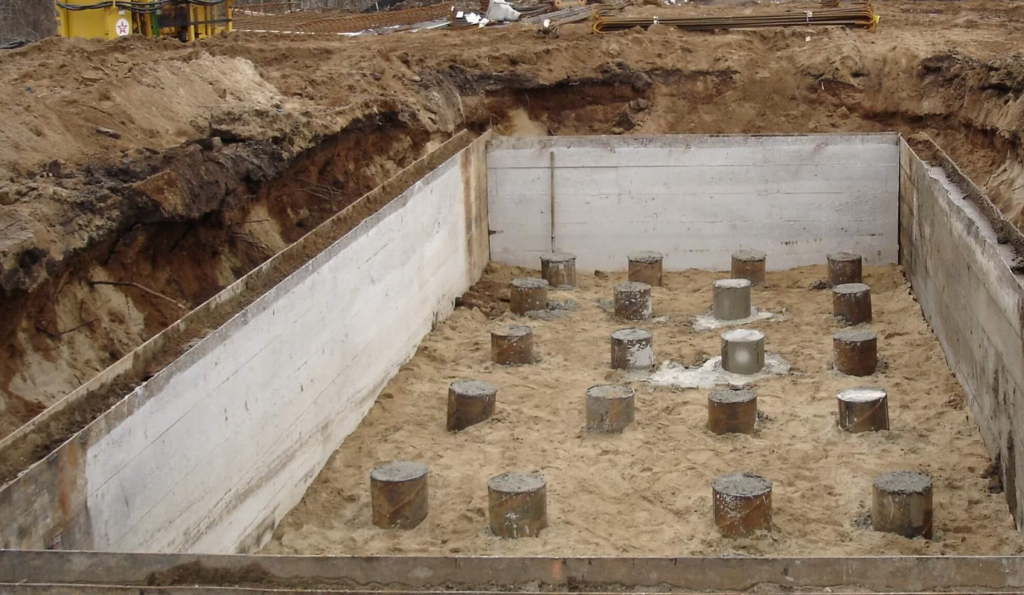
Pile Foundation:
This type of foundation is used when the surface soil’s bearing capacity is inadequate to support the structure’s load. Piles, made from steel or concrete, are driven into the ground to a depth where the soil is capable of bearing the load. It’s more common for commercial properties but can also be seen in some residential buildings to manage soil instability.
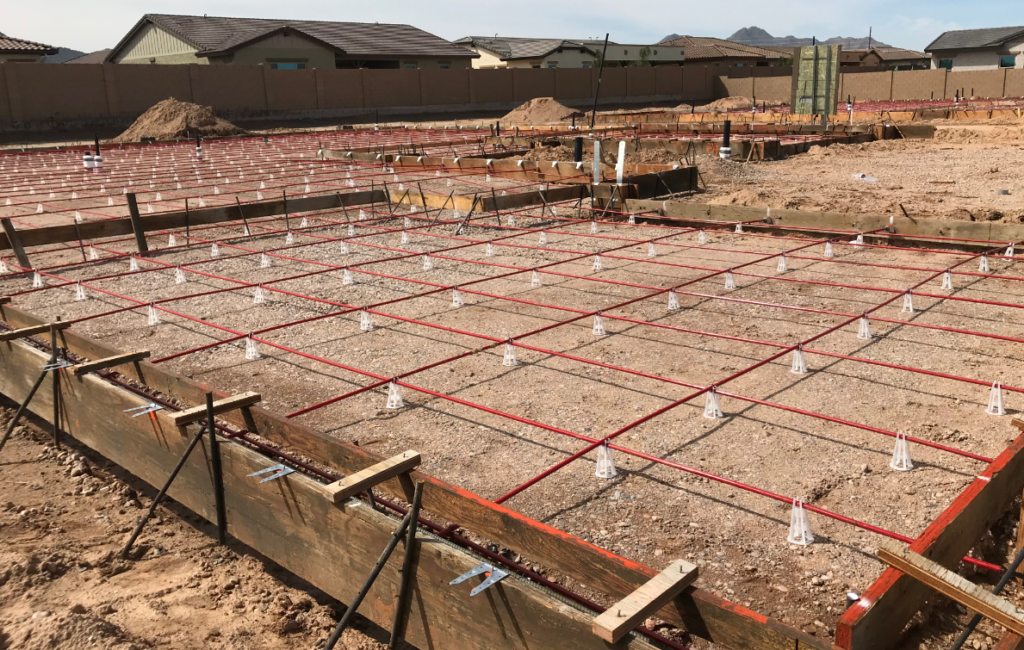
Post Tension Slabs:
This is type of construction technique used in the foundation of a building, typically for houses and smaller commercial buildings. Traditional concrete slabs are poured and then reinforced with rebar. A post tension slab, on the other hand, is made by pouring concrete over a network of high-strength steel tendons that are stressed after the concrete hardens.
In other words, the concrete is cast around a plastic, steel, or aluminum carrier sleeve that is protecting a tensioned steel cable. Once the concrete hardens, hydraulic jacks apply tension to the steel cables, inducing stress to the concrete.
Orchestra of North DFW Soils
Our North DFW landscape is dressed up with primarily clay soils, which, while giving lusciousness to our plant life, can pose unique challenges for home foundations.
This expansive soil swells up when saturated with water and shrinks during dry periods, making it quite the performer with its change in volume.
The constant expansion and contraction lead the house foundation to move, creating potential foundation issues if left unaddressed.
The Texas Seasons Dance
Another factor in these foundation issues is the seasonal weather changes in North DFW.
With a humid subtropical climate, we get hot, humid summers and mild winters.
However, it’s not uncommon to experience moderate to heavy rainfall during spring and fall, causing the fluctuation in soil moisture levels.
These shifts can contribute to foundation movement, leading to potential structural distress.
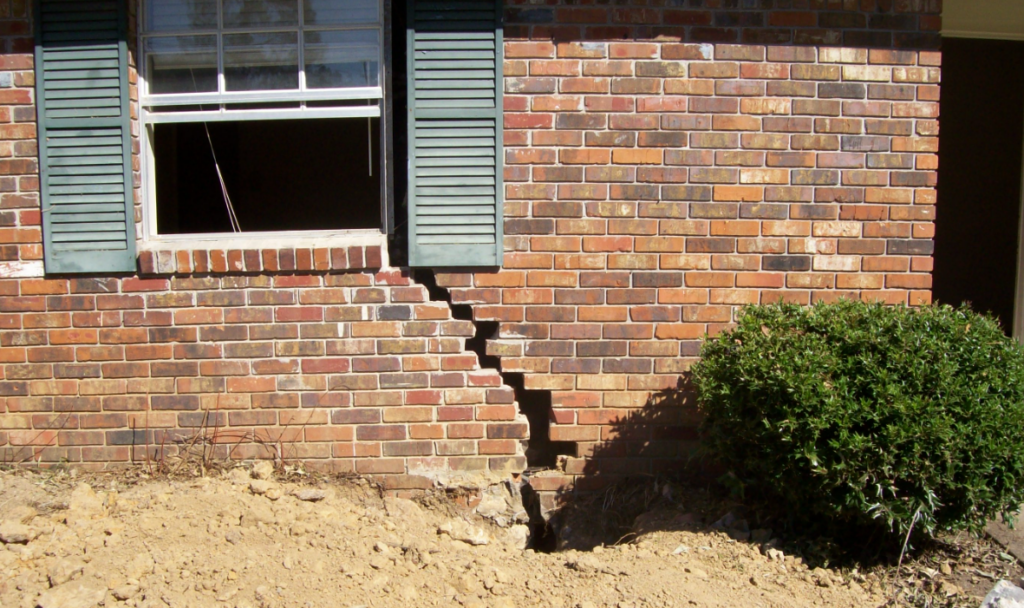
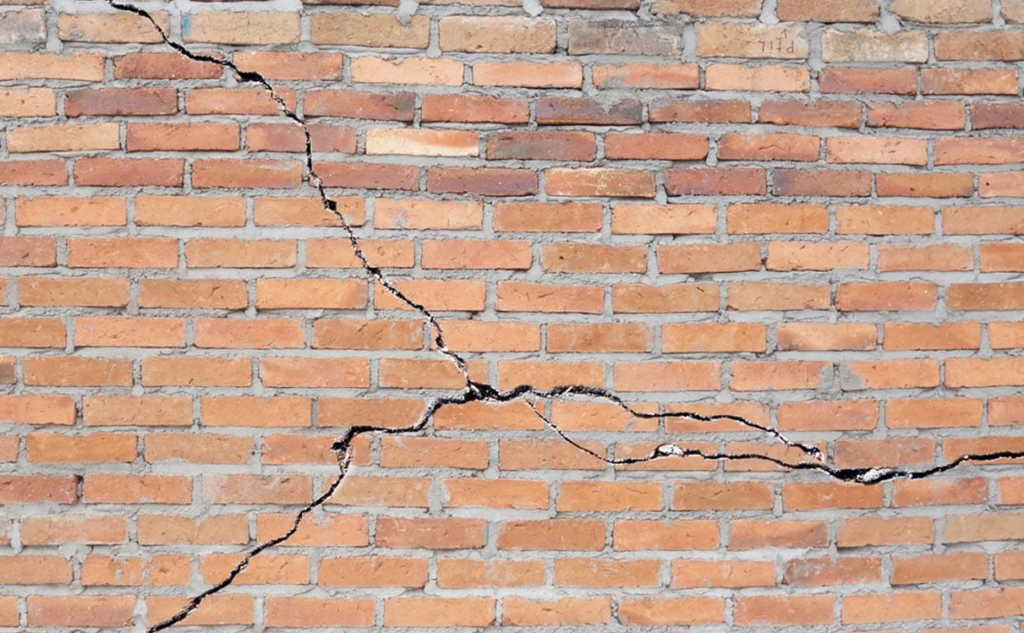
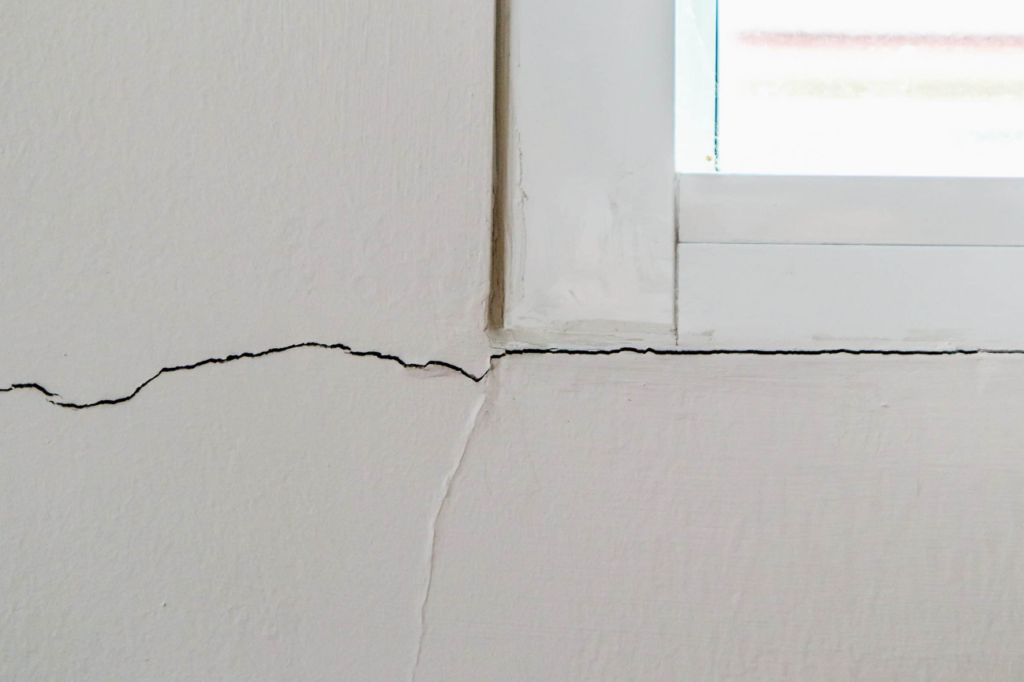
Common Signs of Foundation Trouble
The most prominent signs of foundation issues can appear through various areas within your home.
These include cracks in drywall or exterior brick, uneven or sloping floors, doors and windows that stick or won’t close properly, and separation of walls from the house.
You might also observe external indications like cracks in your foundation itself. These symptoms often start small, but if you notice them growing, it’s time to seek professional help.
Professional Investigations and Assessments
While some signs of foundation issues can be quite apparent, they might not always be a direct indication of a foundation issue.
It is always recommended to call in professionals to assess the situation. Their expertise will ensure you get an accurate understanding of the problem at hand and guide you on how to address it.
Be it structural engineers, foundation repair companies, or independent contractors; it is crucial to select a team experienced in dealing with problems specific to local area homes.
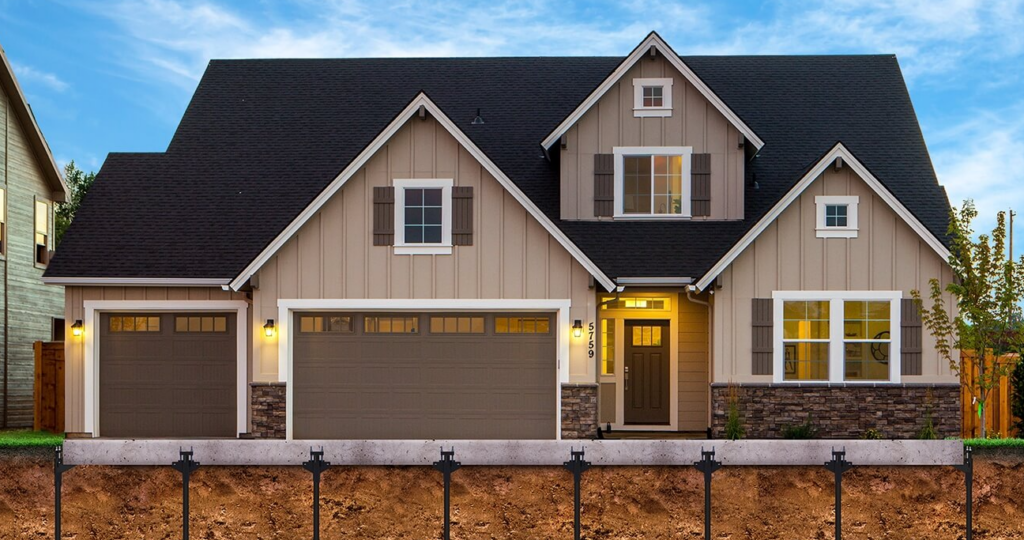
Foundation Repair Solutions
If it is determined your house has a foundation problem in need of repair, remember that it’s not the end of the road.
The repair process may involve various methods based on the problem identified, such as slab jacking, pier and beam repair, or foundation leveling.
Each differs in approach but aims to restore the stability and balance of your home’s foundation.
I have put together a comprehensive home seller’s guide just for you.
Prevention is Key
While it’s comforting to know that foundation issues are repairable, prevention is undeniably better than cure.
Regular inspections, maintaining consistent soil moisture level around your home, ensuring proper drainage, and controlling vegetation around your home can go a long way toward prevention.
How can you prevent home foundation issues?
1. Properly water the foundation: In dry climates like North DFW Texas, it is essential to keep the soil around the foundation consistently moist. Avoid over-watering, as it can cause soil expansion and heave. Use soaker hoses or a drip irrigation system to keep the soil evenly moist.
2. Regularly inspect and repair any plumbing leaks: Leaking pipes and drainage systems can lead to excess moisture around the foundation, which can cause soil erosion and foundation settling. Be vigilant in identifying and promptly addressing any leaks.
3. Install a good drainage system: Ensure that your property has effective drainage to divert water away from the foundation. Consider installing gutters, downspouts, and French drains to channel water away from the house.
4. Maintain proper grading: The slope around your house should be designed to direct water away from the foundation. Regularly inspect the landscape grading and make any necessary adjustments to ensure water flows away from the home.
5. Avoid excessive landscaping near the foundation: Large trees, shrubs, and plants close to the foundation can potentially cause issues with their roots. Plant them at a safe distance from the house to avoid damage to the foundation due to root growth.
6. Control expansive soils: Expansive soils, such as clay, can cause significant foundation issues. Maintain a consistent moisture level around the foundation to minimize soil expansion and contraction. Consider using a moisture maintenance system to regulate the moisture content in the soil.
7. Seek professional advice: Consult with a foundation specialist in North DFW Texas to assess potential risk factors and receive guidance on preventive measures. They can provide recommendations tailored to your specific property and its surroundings.
8. Install a foundation watering system: For added protection, consider installing a foundation watering system that automatically waters the foundation at regular intervals. This can help maintain stable soil moisture levels and prevent foundation issues.
9. Regularly monitor the foundation: Keep an eye out for signs of foundation problems, such as cracks in walls or ceilings, doors and windows that stick, or uneven floors. Address any issues promptly to prevent further damage.
10. Follow building codes and guidelines: If you are constructing a new home or making additions, ensure compliance with local building codes and guidelines. This includes proper site preparation, foundation design, and drainage systems.
I would be thrilled to help you with any of your real estate needs. Whether you’re looking to buy, sell, or just need some guidance, I’m here to assist you every step of the way.
Working With the Right Realtor
Whether you’re thinking of selling a house with foundation issues or trying to prevent them while buying a new home, your Realtor plays a vital role.
Rely on experienced professionals like Sherien Joyner, your friendly Realtor for North DFW, Texas.
Armed with exceptional knowledge of the local real estate scene and its challenges, I can guide you through your buying or selling journey with the utmost expertise and care.
Wrapping it up
Foundation issues can seem somewhat daunting to homeowners in North DFW, but they don’t have to be.
Knowledge about their causes and signs, and understanding that they can be repaired, can help calm your nerves. And working with experienced professionals not only gives you the right guidance but also adds assurance to the process.
So next time you come across the term “foundation issues,” remember – they’re just a part of homes growing up, and absolutely nothing can’t be handled with the right tools and the right partner.
For more insights and help navigating your real estate journey, don’t hesitate to reach out to me, Sherien Joyner, your experienced Realtor for the North DFW area, Texas. Together, we can create a solid foundation for your dream home, free of worries.
Believe it or not, your house’s foundation is its superhero. It bears the weight and pressure of your house and maintains its structure, keeping it even and straight.
Encountering shifting soil, temperature fluctuations, or natural wear and tear can cause some strain on your foundation.
As a homeowner, you may see these shifts manifest in various distressing signs within your home.
Popular FAQ's
Are foundation issues common in North DFW, Texas homes?
Foundation issues are relatively common in North DFW, Texas homes due to the region’s expansive clay soil. The soil expands during periods of heavy rainfall and contracts during dry spells, which can put stress on the foundation and cause issues.
How can I identify potential foundation issues in a home?
Look for signs such as cracks in the walls, doors and windows that are difficult to open or close, sloping or uneven floors, or gaps between the walls and the floor or ceiling. These can be indications of foundation movement and should be further evaluated by a professional.
Can foundation issues be repaired?
Yes, foundation issues can often be repaired. The method of repair will depend on the specific issue and the severity of the damage.
It’s important to consult with a licensed foundation repair specialist to assess the situation and determine the appropriate course of action.
Do foundation issues affect the value of a home?
Yes, foundation issues can potentially impact the value of a home. If the issues are severe and left unresolved, they may deter potential buyers and make it more challenging to sell the property.
However, if the foundation has been properly repaired and documented, it may not have a significant impact on the value.
Should I get a foundation inspection before buying a home in North DFW, Texas?
Absolutely! It’s highly recommended to get a professional foundation inspection before purchasing a home in this region.
A professional inspector will assess the current condition of the foundation, identify any potential issues, and provide you with valuable information to make an informed decision about the purchase.
Feel free to contact me for a list foundation repair companies I recommend.






